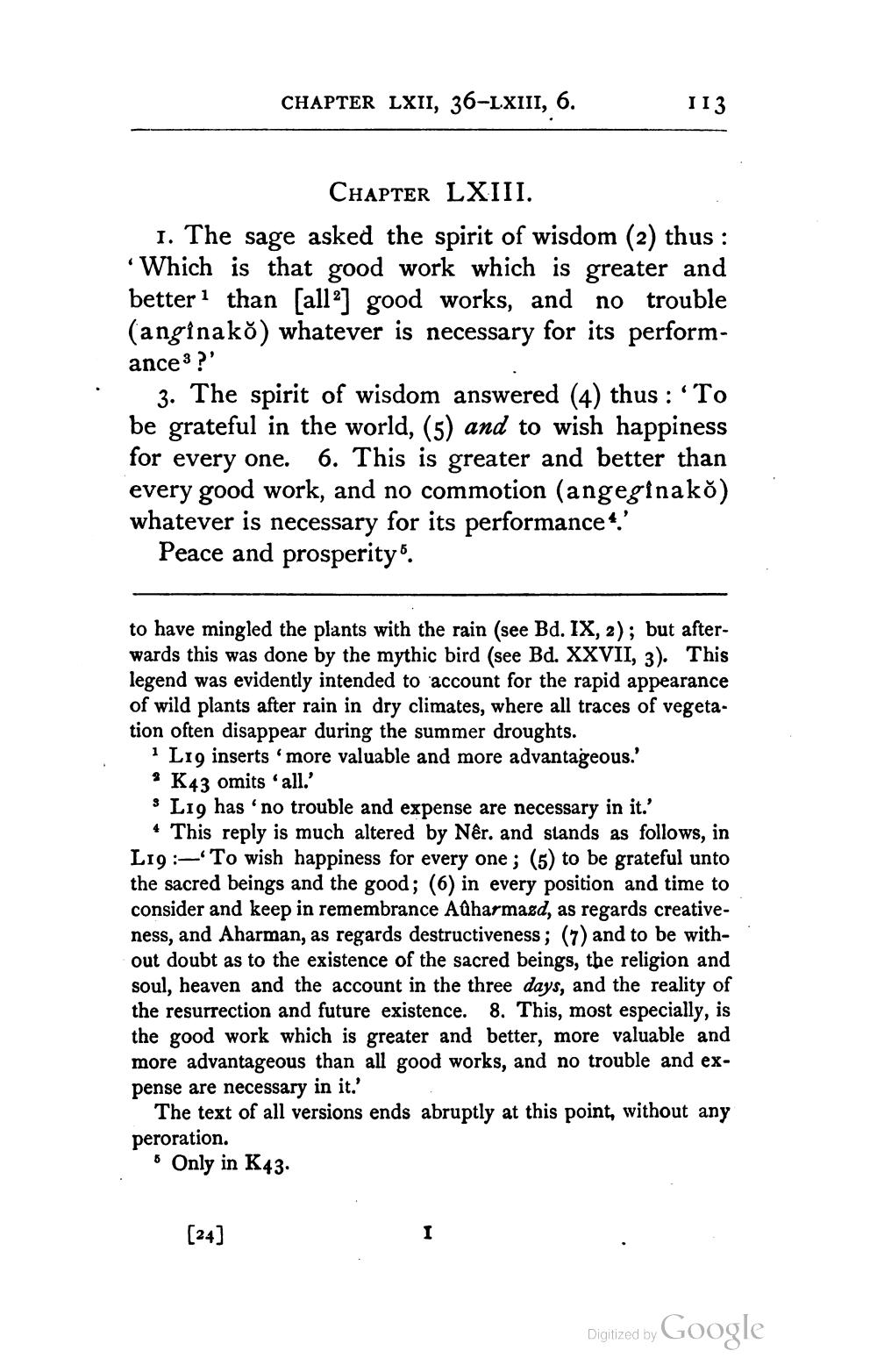________________
CHAPTER LX
CHAPTER LXII, 36-LXIII, 6.
113
CHAPTER LXIII. 1. The sage asked the spirit of wisdom (2) thus : . Which is that good work which is greater and better1 than [alla] good works, and no trouble (anginako) whatever is necessary for its performances ?'
3. The spirit of wisdom answered (4) thus : 'To be grateful in the world, (5) and to wish happiness for every one. 6. This is greater and better than every good work, and no commotion (angeginako) whatever is necessary for its performancet.'
Peace and prosperitys.
to have mingled the plants with the rain (see Bd. IX, 2); but afterwards this was done by the mythic bird (see Bd. XXVII, 3). This legend was evidently intended to account for the rapid appearance of wild plants after rain in dry climates, where all traces of vegetation often disappear during the summer droughts.
1 L19 inserts more valuable and more advantageous.' ? K43 omits all.'
L19 has no trouble and expense are necessary in it.' 4 This reply is much altered by Nêr. and stands as follows, in L19:— To wish happiness for every one ; (5) to be grateful unto the sacred beings and the good; (6) in every position and time to consider and keep in remembrance Adharmasd, as regards creativeness, and Aharman, as regards destructiveness; (7) and to be without doubt as to the existence of the sacred beings, the religion and soul, heaven and the account in the three days, and the reality of the resurrection and future existence. 8. This, most especially, is the good work which is greater and better, more valuable and more advantageous than all good works, and no trouble and expense are necessary in it.'
The text of all versions ends abruptly at this point, without any peroration.
5 Only in K43.
Digitized by Google




